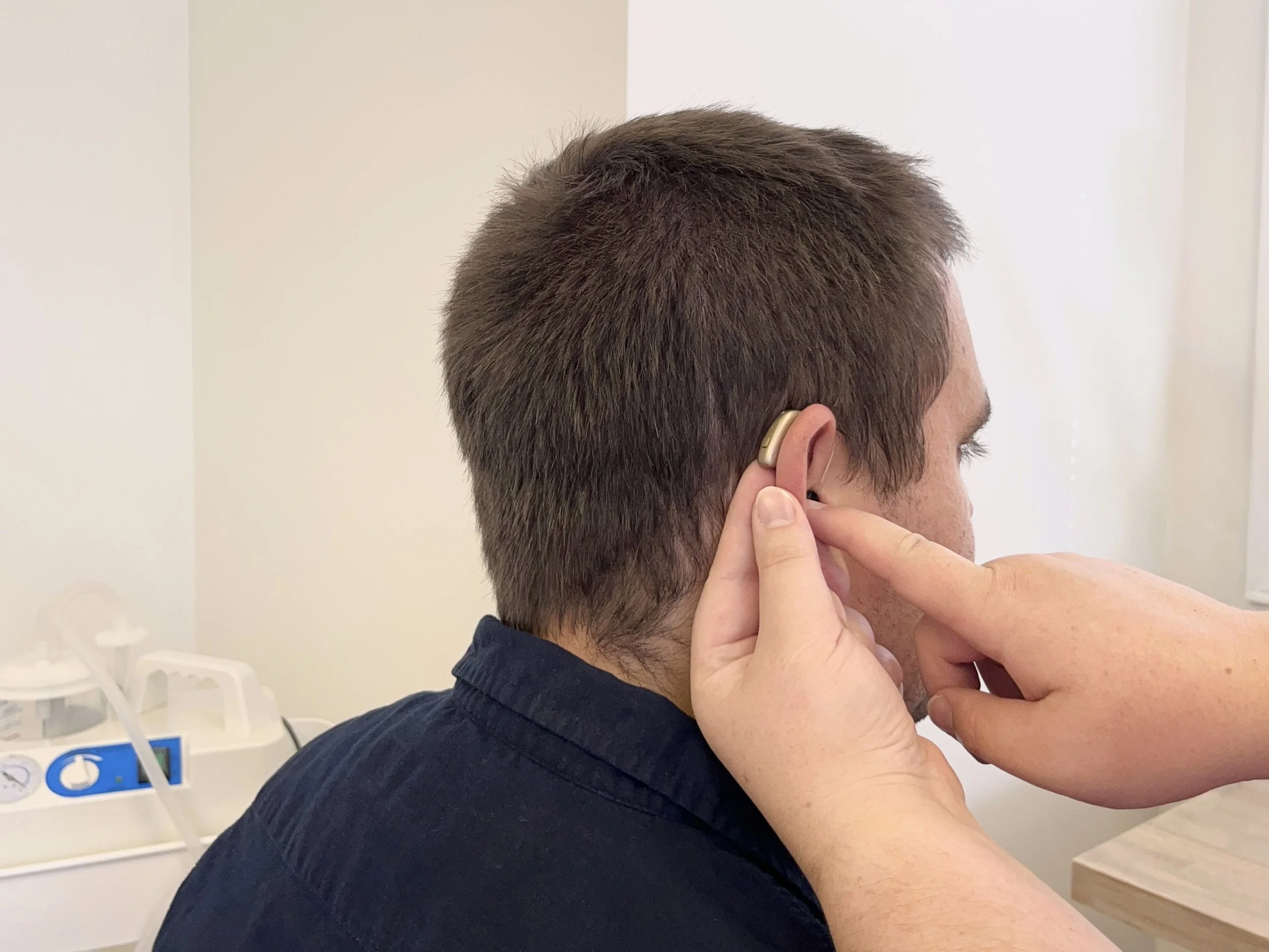Take Control of Your Tinnitus
Tinnitus is the experience of hearing ringing, buzzing, or other sounds when there’s no external noise. It can feel frustrating, confusing, and sometimes overwhelming — but you’re not alone, and there are ways to manage it.
Our approach starts with understanding your tinnitus story — what you’re hearing, how it affects you, and what you’ve tried so far. From there, we’ll guide you toward options that are realistic and backed by science, so you can regain control and improve your day-to-day comfort.
What Causes Tinnitus?
Tinnitus isn’t a disease on its own but a symptom of something happening in your ears or nervous system. Causes can range from simple issues like earwax buildup or exposure to loud noise, to changes in your inner ear or hearing pathways. Sometimes the cause isn’t clear, but understanding your unique situation is the first step toward relief.
What Can You Do About It?
For many, tinnitus is more than just a noise — it can impact sleep, concentration, mood, and overall quality of life. While there’s no one-size-fits-all cure, there are proven strategies to reduce how much tinnitus interferes with your life. These include hearing support, sound therapy, stress management, and personalized treatment plans based on a thorough assessment.
Frequently Asked Questions
-
Start by getting a hearing test (and hearing aids if needed). Hearing aids can help with a hearing problem by amplifying sounds. Amplifying sounds can also help with tinnitus. Most people say that they notice their tinnitus less when they are wearing hearing aids.
-
There are many causes of tinnitus that may include exposure to loud noise, head injury, medications, ear wax – and many other causes. For many people it is impossible to know the exact cause of tinnitus.
-
It is rare for a drug to reduce the loudness of tinnitus. All drugs used for tinnitus were actually developed for other problems like: depression, anxiety, and trouble sleeping. Some of these drugs can improve your mood. A better mood can help make tinnitus less of a problem.
-
There are labs around the world looking for a cure, but there isn't a cure yet. However, there are many ways to feel better without making tinnitus quieter
-
You can feel better by learning how t o change your reactions to tinnitus - or by learning to manage your reactions to tinnitus. It is also important to exercise and eat right.
-
Many people have hearing problems along with tinnitus. Some people think that the tinnitus causes their hearing problems - which is not true (hearing loss causes hearing problems). If you have tinnitus or hearing problems, you should start with a hearing test.
-
No, experiencing tinnitus does not predict hearing loss.
-
If you have both tinnitus and hearing loss, combined tinnitus and hearing treatment is often the most effective method.



